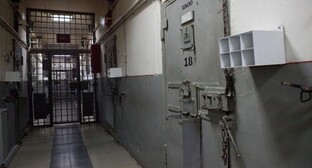04 May 2011, 22:20
Chapidze: Freedom House failed to mention simulated report on Russia's invasion into Georgia
Eliso Chapidze, a member of the Board for Journalistic Ethics, believes that last year Georgia really improved some indicators on the media freedom as fixed in the report of the Freedom House. However, she pointed out that last year several journalists were beaten; and the House failed to mention the events of March 2010, when the "Imedi" TV Company showed a simulated story about invasion of Russian troops to Georgia.
Let us remind you that the report of the Freedom House gave Georgia 55 points and put it to the 118th position out of 196 countries in the ranking on the media freedom; thus, the country has improved its rating against the previous report, where it scored 59 points.
"Frankly speaking, I don't see much difference between 55 and 59 points; however, in recent years international organizations do believe that the situation in Georgia has improved," Eliso Chapidze told the "Caucasian Knot" correspondent.
In her turn, she gave an example of the Public Television of Georgia: the work of this company is constantly monitored by the public; and last year, according to Chapidze, it gave better balanced information.
"This year, on April 25, I was surprised, when lawyer Shalva Shavgulidze, who represented the Girgvliani family at the Strasbourg Court, appeared live on the First Public Channel. For fifteen minutes he spoke about the case of Sandro Girgvliani, which was won by his family at the European Court of Human Rights (ECtHR) in Strasbourg against the Georgian government. Shavgulidze was interviewed by David Paichadze, of whom I don't think as about an unbiased journalist," noted Ms Chapidze.
A human rights defender Ucha Nanuashvili also noted positive trend in Georgian media. "Last year a permit was granted on satellite broadcasting to 'Maestro' TV Channel; the work is now in progress on the law on broadcasters; and now we have a chance to find out the real owners of 'Rustavi-2', 'Imedi' and other channels," Mr Nanuashvili told the "Caucasian Knot" correspondent.
Eliso Chapidze also recalled that before the elections to local self-governments in May 2010, the authorities were more cooperative with journalists; and the government-controlled TV channels really gave better balanced footage.
However, according to Nanuashvili, the observed changes cannot be considered irreversible. "Last year, several journalists were beaten up. Especially strong pressure on their political opponents and the press was exerted in the course of the above local elections by members of the United National Movement. However, after the elections their position has changed; and they began reacting to the pressure on journalists," Mr Nanuashvili has noted.
Besides, he gave an example of journalist Vakhtang Komakhidze as evidence of incomplete media freedom in Georgia. "This is the first journalist from Georgia, who was granted political asylum in Western Europe, in Switzerland. Before that, I do not remember any such cases," said Ucha Nanuashvili.
When asked about the reasons of the improvement in Georgia's rating on the media freedom, Eliso Chapidze answered that public pressure was in the first place.
"After the many-thousand-strong oppositional rallies held last April-June, the authorities could not behave like 2-3 years ago. They felt that the situation has changed and now try to play democracy. Even the Secretary of the Security Council Giga Bokeriya tried to make it clear - in his latest TV interview with US Ambassador John Bass - that he is willing to cooperate with journalists and NGOs. It all suggests that the position of the United National Movement is weak," said Eliso Chapidze.
According to Ucha Nanuashvili, the changes happened due to the international community's close attention to the situation in Georgia.
Eliso Chapidze also noted that she was surprised that the report of the Freedom House did not include the events of March 2010, when the "Imedi" showed a story about an alleged invasion of Russian troops into Georgia. Let us remind you that the story was perceived by many viewers as a real invasion of Russian troops; so, the country was all in panic. Many media experts believed then that the authorities made that simulation with the aim to intimidate the population. Members of the "Charter of Journalistic Ethics" demanded to punish the authors of the story arguing that they had violated the principles of journalistic ethics by showing a simulation in the news programme. However, no penalties followed.
Another point which was not mentioned in the report is the journalists' access to public information. Quite often, press services of state bodies refuse to timely provide information, noted Ms Chapidze.
"We always talk about this problem; however, foreign experts, who assess the situation, say that it's a small problem, and we can go to court. We remind them that the state duty for a suit is 100 laris. They say that it's a small amount of money... I think we know better the situation; there's no need to talk about it all the time," said Eliso Chapidze.
Ucha Nanuashvili believes that Georgia can significantly improve the situation with the media freedom and quit the category of "partially free" countries, if they investigated the case of beaten journalists and drive the "Imedi" and "Rustavi-2" out of the influence of the ruling party.
In the opinion of Chiora Taktakishvili, a member of the parliamentary majority, Georgia should really improve its position. However, he sees one of the major problems in the professional level of journalists.
"It is important that journalists themselves have realized the need to raise their professional level," Oliver Reisner, project manager for the European Union's mission in Georgia, told the "Caucasian Knot" correspondent.
Nevertheless, according to the polls made by the Institute of Civil Development, other listed problems are as follows: lack of the government's political will to hold dialogue; weakness of the society and fear (albeit the English version used the word "terror", that is, intimidation by local authorities of journalists, society and opposition).
Author: Beslan Kmuzov Source: CK correspondent




